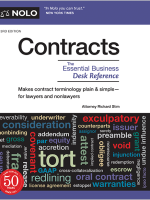The amount of paperwork associated with borrowing money from a bank can be truly daunting. Whether you are taking out a loan to get money to buy a car or borrowing to purchase a new home, one of the most important documents the lender will ask you to sign is a promissory note. Notes payable to banks define your obligation to repay the debt and give the lender the right to sue you for the money if you do not live up to your obligation.
Promissory notes are essentially IOUs. However, the repayment terms of notes payable to banks can differ depending upon the terms of the loan. There are four common types of promissory notes that differ primarily in the manner in which they are repaid.
Single-payment notes payable to banks
When you borrow money from a bank, you the note you sign will state the interest rate you are being charged and the principal or amount you borrowed. Single payment notes payable to banks obligate you to repay the principal borrowed plus the interest charged by the lender in one payment that is due on a date specified in the note.
The downside disadvantage to you as a borrow obligated under single payment notes payable to banks is having to come up with all of the principal and accrued interest in a single payment. If you unforeseen circumstances arise and you cannot make the payment, the lender can commence collection proceedings against you.
Amortized notes payable to banks
Amortized notes payable to banks are the type of notes commonly used for borrowing money to purchase a home. This type of note obligates you to make a payment each month for the life of the loan as stated in the note. The amount of the monthly payment remains the same each month with part of the payment going toward the interest on the outstanding principal balance and the rest of the monthly payment going toward repayment of principal.
As you pay the principal down each month, the amount of your monthly payment that goes toward interest will be less, and the amount that goes toward repayment of the principal will increase. The monthly payment stated in amortized notes payable to banks are calculated to pay off the principal over the period of time stated in the note.
Negative amortization notes
Some notes payable to banks are structured to keep monthly payments lower than they might otherwise be if the loan were amortized. The way this is accomplished by choosing a monthly payment the borrower can afford to pay over all or part of the life of the loan.
Because the payments are not enough to cover all of the interest and principal that is due each month, the unpaid interest is added to the principal balance resulting in the potential for you owing more on the due date than you originally borrowed. This is why negative amortization notes can be dangerous for borrowers.
Interest-only notes payable to banks
These notes are similar to negative amortization notes except you agree to pay nothing toward principal each month and only pay the interest that is due. At the end of the term of the loan, you will owe the entire principal balance you originally borrowed. You will pay more interest than you would with amortized notes payable to banks because the principal on which the interest is calculated never goes down.
Get legal help with notes payable to banks
Knowing there are different types of notes payable to banks does not make deciding which of them is the best one for you any easier. The legal advice and guidance of an attorney might be of assistance.

